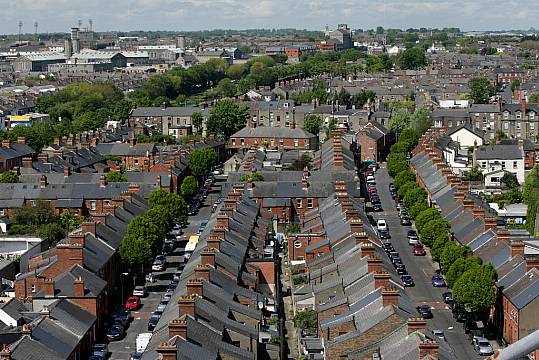A total of 12,259 people accessed emergency homeless accommodation during the last week of April, the highest level ever recorded by the Department of Housing.
The overall figure includes 3,594 children across a total of 1,733 families.
Separately, the Dublin rough-sleeper count for spring was carried out over a week in early March.
It reported a reduction in rough sleeping since winter with outreach teams engaging 83 individuals, down from 91.
Focus Ireland CEO Pat Dennigan explains: “As we all know there was a pause on “No Fault” evictions under ban. Lifting the ban did not have an immediate impact on all tenants at risk, and we will continue to the impact of that decision through May and June depending on the date of the original termination of tenancy.
"Focus Ireland, along with many other agencies and local authorities are working hard to make the Government’s ‘safety net’ measures work, but despite many successes, there are just too many holes in the net and people are falling through into homelessness.”
He added: “We know from previous Focus Ireland research into homelessness, that families may not immediately present to frontline services after being evicted from their homes but may instead be part of the so called ‘hidden homeless’ for some time by staying with friends or family and couch-surfing.
"This means that the full effect of the eviction ban ending will likely not be clear for some time yet. Meanwhile, the problems in the private rental market which triggered the eviction ban in the first place are continuing with no new policy to encourage landlords to remain.”
Mr. Dennigan said Focus Ireland believes that homelessness is having a wider negative impact right across our society in the long term. We are one of the wealthiest nations on earth but, through the failure of our housing system, too many of our people experience only anxiety, insecurity and stress. "

Wayne Stanley, Executive Director of the Simon Communities of Ireland, said: “Sadly we are not surprised to see the number of people in homeless emergency accommodation rise to over 12,000 this month but we have to be shocked that the situation has been allowed to get to this point.
"These are the highest figures we’ve ever seen and it represents an unprecedented number of men, women and children experiencing the trauma of homelessness. The almost six per cent increase in family and children in homeless emergency accomondation is particularly concerning. While we have to acknowledge important initiatives taken by Government and rolled out by local authorities, such as the tenant in situ scheme, we also have to recognise that this is a policy made crisis.
"The recent announcement of projected surpluses show that Budget 2024 will be an opportunity for the Government to reprioritise addressing the homeless and housing crisis through the effective use of available resources. It’s an opportunity that cannot be missed and requires focus, planning and an all of Government response. We will be sending our Pre-Budget Submission to Government that will set out what is needed in Budget 2024 to reduce homelessness. We need to renew ambition in the areas of homeless prevention, the provision of secure, affordable homes and addressing vacancy.”







